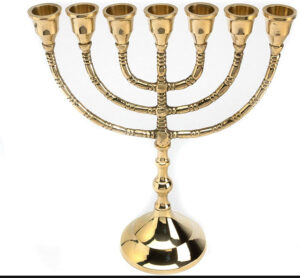 ‘After These Things’ Chapter 5.3 – After the Rapture, the Jewish Remnant – Particularly from the Psalms
‘After These Things’ Chapter 5.3 – After the Rapture, the Jewish Remnant – Particularly from the Psalms
From our book ‘After These Things – Summaries of John Nelson Darby’s Papers on Prophecy – and more…’ Compiled by Daniel Roberts. For more about this book click on the picture or CLICK HERE

In the Psalms we have Jehovah’s sympathetic thoughts and feelings for the Jewish remnant. God and God’s purpose regarding Christ, His anointed, ar revealed. We see this clearly in the first two psalms.
The Psalms connect Christ with and Israel, and with the remnant in particular. It would be impossible to enter into the detail of all 150 Psalms here, but what we cannot fail to see is that there is, in the latter day, a godly pious Jewish remnant – tried, oppressed and all but overwhelmed. Jehovah owns and encourages His people and rewards them with Jewish blessings according to promise, Christ having entered into their sorrows and borne their sins. Christ, as Jehovah, comes to judge. The Son of man and King in Zion enters into the temple with all things under His feet, subjecting all the nations to Himself.
There is much more method than is supposed in the five books of Psalms. Christ enters in spirit into the remnant’s position. Sometimes the Holy Spirit arouses godly feelings; at other times He enters personally and sympathetically in grace into their trials.
A summary of a part of a paper by J.N. Darby entitled: The Rapture of the Saints and the Character of the Jewish Remnant: Published in Darby’s Collected Writings – Volume 11 (Prophetic 4) Pages 134-142
5.3 After the Rapture, the Jewish Remnant – Particularly from the Psalms
In the Psalms, we have Yahweh/Jehovah’s loving thoughts and feelings for the Jewish remnant. The Psalms connect Christ with Israel.
We cannot enter into the detail of all 150 Psalms here, but we must observe that there is, in the latter-day, a godly pious Jewish remnant – tried, oppressed and all but overwhelmed. Jehovah owns and encourages His people and rewards them with Jewish blessings according to promise, Christ having entered into their sorrows and borne their sins. Christ, as Jehovah, comes to judge. The Son of man and King in Zion enters into the temple with all things under His feet, subjecting all the nations to Himself.
There is much more method than is supposed in the five books of Psalms. Christ enters in spirit into the Remnant’s position: sometimes the Holy Spirit arouses godly feelings; at other times, He enters personally and sympathetically in grace into their trials.
First Book (Psalm 1-41)
Psalm 1 distinguishes the righteous person from the rest of the nation, thus marking out the remnant morally. ‘The ungodly shall not stand in the judgment, nor sinners in the congregation of the righteous’ (v. 5). Not only this, the godly righteous Jew, who delights in the law, is promised earthly blessings.
In Psalm 2, the heathen and Jewish rulers rise in rebellion against Jehovah and His Anointed. The Son of God sits upon the throne of Zion and calls upon the kings and judges of the earth to submit to Him.
In Psalms 3-7 the godly man is under constant attack. His faith is tested: the enemy taunts him, beckoning him to desert. The wicked cause him distress, so he appeals to God, the righteous Judge. Christ, the true Godly One enters in spirit into the sorrows of the righteous remnant. Their deliverance wrought by judgment or vengeance, because their blessings and the character of their righteousness are Jewish (which is not the case of the raised or heaven-born saints of the assembly). God hears their cry, and they are exhorted to persevere and depend. The earth is their portion.
Then, in Psalm 8, the Remnant owns Jehovah their Lord whose name is excellent in all the earth. Meanwhile the Son of man, (rejected when He came as Messiah), is given universal dominion. The result is blessing for Israel when the Son of man takes His place in glory.
In Psalms 9 and 10, we have the trial and judgment of the last days: the poor and oppressed are not forgotten. The heathen perishes out of the land (Psalm 10:16).
Psalms 11-15 develop the thoughts, feelings, and apprehensions of the remnant further. Those who walk uprightly, work righteousness, speak truth without backbiting or doing evil to his neighbour will dwell in God’s holy hill (see Psalm 15:1-3).
Psalm 16: Christ’s takes His place with the godly Remnant, as He did historically when He was baptised with John’s baptism. God’s delight was in Christ, who surely needed no repentance. But He says ‘unto the LORD, Thou art my Lord: my goodness extendeth not to thee; but to the saints that are in the earth, and to the excellent, in whom is all my delight’ (Psalm 16:2-3). That corresponds to the New Testament: ‘Both he that sanctifieth and they who are sanctified are all of one’ (Hebrews 2:11). In the Psalm, Christ says that he takes the place of a servant to Jehovah (not His divine place). He follows the path of life, does not see corruption, and finds His eternal joy as Man in God’s presence at the right hand of Jehovah.
Psalm 17 is His appeal to His righteousness. David is a type of Christ. Christ will behold God’s face in righteousness and be satisfied, awaking up in His likeness, the true eternal image of the invisible God –‘As for me, I will behold thy face in righteousness: I shall be satisfied, when I awake, with thy likeness[1]’ (v. 15).
In Psalm 18, we see what God has done and will do for the people – from their deliverance from Egypt to the final subjugation of the land under David.
In Psalm 19, we have the testimony of creation and the law.
Psalm 20: We have God’s sympathetic help for the Remnant.
In Psalm 21 Christ’s sorrows and desires culminate in His glory. His days are for ever and ever.
In Psalm 22, it is not only the His sufferings at the hands of men, but also His being forsaken, bearing the wrath of God. The result is grace, which He exercises in making known His name to His brethren and associating Israel with Himself in praise and blessing.
Psalm 23 shows Jehovah’s faithful shepherd care through every difficulty. Christ, the portion of every believer, is our Shepherd. He knows His sheep, and they know Him. Restoration is not exclusively from sin, though He does restore us from that, but also sorrow and oppression of heart.
In Psalm 24, the Lord of Hosts walks with His sheep in grace. In the last day, He will take His place in glory in His hill and the house of Jehovah’s glory. Both the Remnant and the gentiles are brought in.
From this point to the end of Psalm 41, we have every kind of practical exercise which the Remnant will be subjected to in joy or sorrow. But these Psalms always speak of the godly, even when they confess their sins and seek forgiveness. Christ gives them confidence: ‘This poor man cried, and the Lord heard him’ (Psalm 34:6),
Psalm 25: The Remnant had sinned. Christ took their sins on Himself, and sinners are taught in the way.
Psalm 26 is their trial and appeal.
Psalm 27 is their separation from the ungodly.
Psalm 31 reassures the saints. They have confidence founded on Jehovah’s ways with the poor man.
Psalm 37: God fills, guides and encourages sincere hearts. Those blessed of Jehovah receive the promise of the inheritance of the earth.
In Psalm 40, we have the source of all the blessings in the counsels of God. Christ undertakes to accomplish God’s will.
Psalm 41 speaks of the poor man. Christ is the supreme example, even in the face of betrayal. What is done for the least of His brethren is done for Him. The Lord God of Israel will accomplish His purposes in blessing.
Second Book (Psalm 42-72)
The remaining four books give the position of the Remnant and the place that Christ has taken concerning the sorrows of the poor and needy. Jehovah delivers them. The seed of His servants inherit Zion, and they that love His name dwell there.
In Psalm 45, the Messiah appears. The Remnant’s full deliverance is celebrated at the end of Psalm 48.
Psalm 49 is the world’s instruction by the judgment. We see the precious price of redemption (see v. 8).
Psalm 50 gives the general judgment of Israel.
In Psalm 51 we have Israel’s confession of Christ’s death now that their Messiah has appeared.
From here on the people are cast out, and the power of Antichrist is established
Psalms 65, 66 and 67 sound out the praises of God’s deliverance, bursting forth in Zion. The nations are glad.
In Psalm 68, an ascended Christ is the real secret.
Psalm 69: Christ suffers and ascends in glory, securing the poor and needy in Zion.
Psalms 70 and 71, speaks of David’s faltering hope. They may also be applied to the Remnant.
Psalm 72 describes the full reign of peace.
Third Book (Psalm 73-89)
The third book goes out to all Israel, not merely the Jews, and gives God’s government and His dealings with them. This continues till the latter days: the glory and blessing of Zion, and the certainty of mercy by God’s faithful promises.
Fourth Book (Psalm 90-106)
The fourth book shows God’s faithfulness to both Israel and the nations. God’s First-begotten comes into the world. Christ suffers, and Zion is restored. He is the Eternal Creator in Psalm 102.
Fifth Book (Psalm 107-150)
In the closing book, the fifth, we have some of the consequences and effects of Israel’s recovery. There are explanatory Psalms of the scheme of God such as Psalm 110. The law is written on Israel’s heart in Psalm 119. The Songs of Degrees (Psalms 120 to 134) comment on God’s ways. The book ends with the praise of God, pursued in view of millennial blessedness. Such is the testimony of the Psalms.
[1] Contrast that with 1 John 3:2, ‘Now are we the sons of God, and it doth not yet appear what we shall be: but we know that, when he shall appear, we shall be like him; for we shall see him as he is.’


One thought on “After the Rapture, the Jewish Remnant – Particularly from the Psalms”